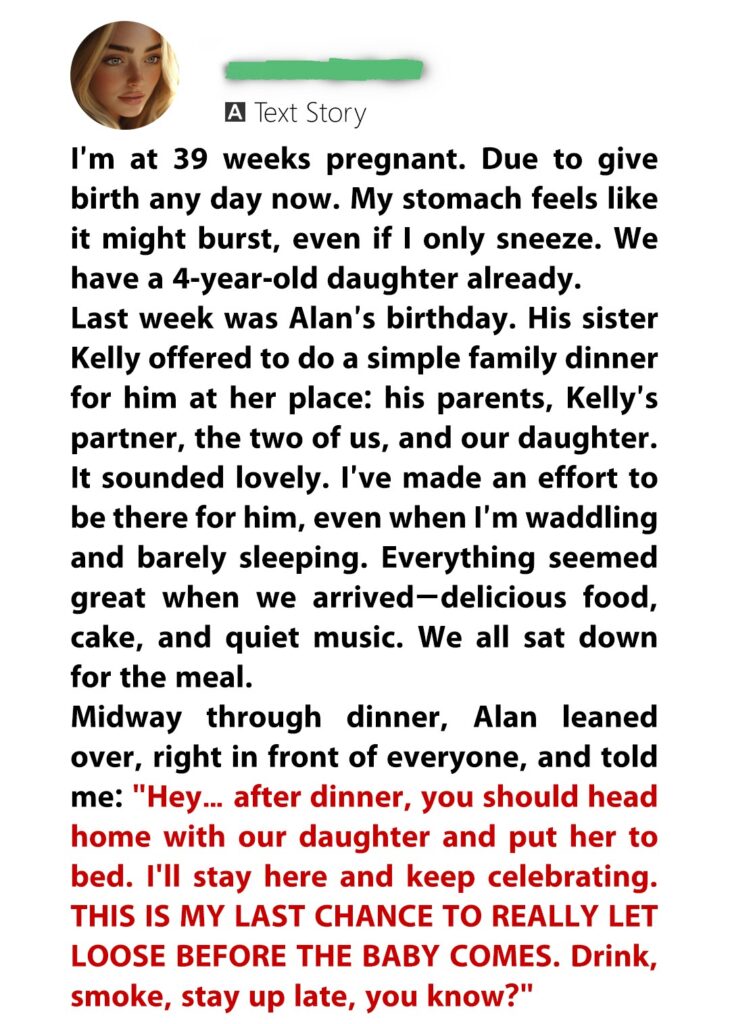Cathy was 39 weeks pregnant, exhausted, and emotionally frayed. Her husband Alan was turning 39, and his sister Kelly had organized a small family dinner to celebrate. Cathy hoped the evening might offer a rare moment of peace—a pause from the loneliness and physical strain she’d endured throughout her pregnancy.
But the night unraveled quickly.
Alan had been absent for nearly every milestone of Cathy’s pregnancy. One ultrasound. No help with the nursery. No weekends off. His excuse was always the same: “I have to work.” Meanwhile, Cathy juggled swollen feet, sleepless nights, and a four-year-old daughter, Zoey, with little support.
Still, she showed up to the dinner in her best maternity dress—the one Alan used to love. He didn’t notice. Not the dress. Not her effort. Not her pain.
As the family gathered around the table, laughter filled the room. Cathy tried to smile through the discomfort. Then Alan turned to her and said, loud enough for everyone to hear: “You could’ve at least tried to look decent tonight.”
The words sliced through her like glass.
No one spoke. The room fell silent. Cathy’s face burned with humiliation. She looked at Zoey, who clutched her hand, sensing something was wrong. Without a word, Cathy stood up, took her daughter’s hand, and walked out.
She didn’t cry until she reached the car.
That night wasn’t just about a birthday—it was about everything Alan hadn’t done. The missed appointments. The broken promises. The emotional neglect. His comment was the final crack in a wall that had been crumbling for months.
Cathy realized she wasn’t just tired from pregnancy. She was tired of being invisible.



